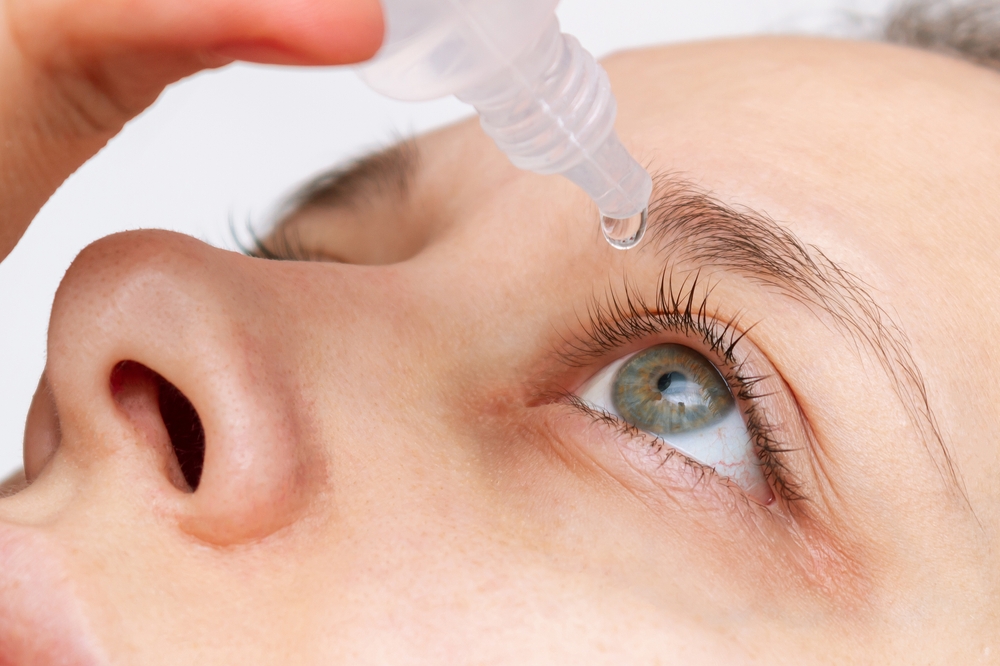
Dry eye is a common condition that occurs when your tears aren't able to provide adequate lubrication for your eyes. It can happen if your eyes don't make enough tears, or if the tears that you do produce evaporate too quickly.
Dry eye can make it feel as though there's something in your eye, leading to discomfort and even pain. It can also make your vision blurry or cause your eyes to become red and swollen. In severe cases, dry eye can even lead to vision loss. Despite its prevalence, many people are unaware of the treatment options available for this condition, which is why I'm writing this article.
Causes and Symptoms of Dry Eye
Dry eye can be caused by a variety of factors. Age is a common one, as your eyes produce fewer tears as you get older. Certain medical conditions can also cause dry eye, including diabetes, rheumatoid arthritis, and thyroid disorders. Other causes include long-term use of contact lenses or eye surgery.
When it comes to symptoms, dry eye can manifest in a number of ways. You might experience a stinging or burning sensation in your eyes, or feel like there's something in your eye that you can't get out. Other symptoms include red eyes, a heavy feeling in your eyelids, or difficulty driving at night.
In some cases, you might even find that your eyes water excessively. This might seem counterintuitive, but it's actually your body's response to the dryness - it's producing more tears in an attempt to soothe your eyes.
Importance of Understanding Prescription Medications for Dry Eye
Understanding dry eye prescription medications is crucial for anyone suffering from this condition. These medications can not only provide relief from the symptoms of dry eye, but also help to prevent further damage to your eyes.
There are several different types of dry eye prescription medications available, and understanding how they work can help you to make an informed decision about your treatment.
Understanding dry eye prescription medications is important because it allows you to take an active role in your treatment. You'll be able to have informed discussions with your doctor about your options, and make choices that are right for your individual needs and circumstances.
Common Types of Dry Eye Prescription Medications
There are several types of dry eye prescription medications that are commonly prescribed by doctors. These include artificial tear drops, which replace the moisture that your eyes are lacking; anti-inflammatory drugs, which reduce inflammation and allow your eyes to produce more tears; and drugs that stimulate tear production.
Another type of medication that can be used to treat dry eye is called a corticosteroid. These drugs reduce inflammation in your eyes and help to increase tear production. They're usually used for short-term treatment, as long-term use can have side effects.
There are also prescription eye drops that can be used to treat dry eye. These drops work by increasing the amount of tears that your eyes produce, and can provide relief from the symptoms of dry eye.
What You Need to Know About Prescription Medications for Dry Eye
When it comes to what you need to know about prescription medications for dry eye, there are a few key points to keep in mind. First, it's important to remember that these medications are just one part of a comprehensive treatment plan. They can provide relief from symptoms, but they're not a cure for dry eye.
Second, it's important to take your medication exactly as prescribed by your doctor. If you stop taking your medication too soon, or if you don't take it as directed, it may not be as effective.
Lastly, it's important to remember that all medications have potential side effects. For dry eye prescription medications, these can include eye irritation, blurred vision, and in rare cases, changes in vision. Always speak with your doctor about the potential risks and benefits of any medication that you're considering.
Tips for Managing Dry Eye Symptoms with Prescription Medications
Managing dry eye symptoms with prescription medications can be a bit of a balancing act. On one hand, you want to reduce your symptoms and improve your comfort. On the other hand, you don't want to rely too heavily on medications, especially since they can have side effects.
Another tip is to make lifestyle changes that can help to reduce your symptoms. This includes staying hydrated, avoiding eye irritants like smoke and wind, and taking breaks from activities that can strain your eyes, like reading or looking at a computer screen.
When to See a Doctor for Dry Eye Symptoms
If you're experiencing dry eye symptoms, it's important to see a doctor. While dry eye can often be managed with over-the-counter treatments, if your symptoms are severe or persistent, you may need prescription medications.
In addition to prescribing medication, your doctor can also check for underlying conditions that could be causing your dry eye. In some cases, treating these conditions can help to relieve your dry eye symptoms.
Finally, seeing a doctor can help to prevent complications from dry eye. Left untreated, dry eye can lead to further eye problems, including damage to the surface of your eyes and potential vision loss.
Finding the Right Dry Eye Treatment for You
Dry eye is a common, but often misunderstood, condition. Understanding what you need to know about prescription medications for dry eye is vital for managing this condition effectively. With the right treatment and care, you can relieve your symptoms, protect your eyes, and improve your quality of life.
If you are experiencing dry eye and considering prescription medication, contact Wilson Eyecare Professionals at our office in Greenfield, Indiana. We will help you find the right course of action to help manage your dry eye. Call (317) 477-3937 to discuss any questions about our dry eye treatments or to schedule an appointment today.






